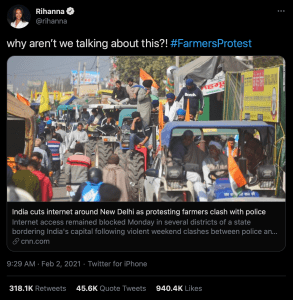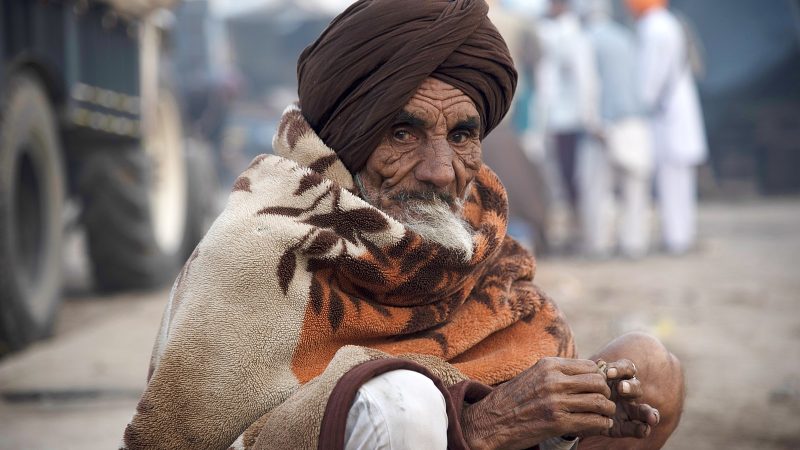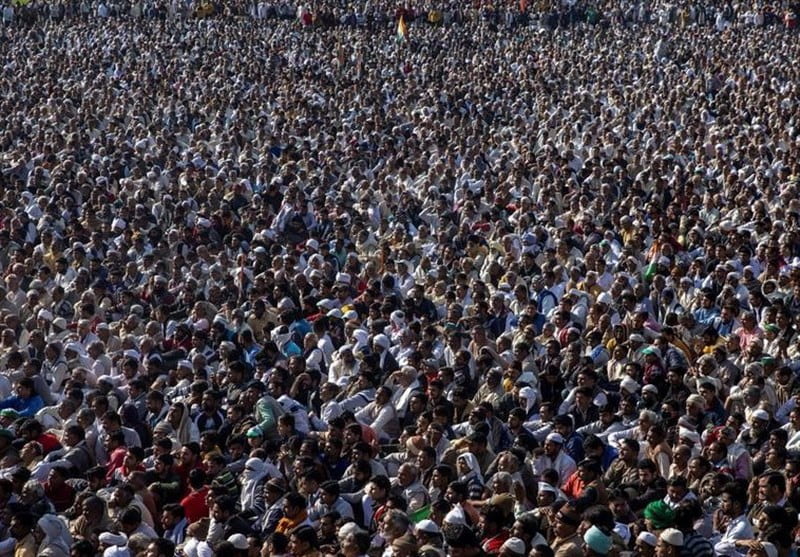Farmers Protests
In November 2020, India saw the largest protest in world history with tens of thousands of farmers and more than 250 million people standing in solidarity. For the past six months, India’s farmers have been protesting and striking against three agricultural bills that were passed last September. Until recently, the government has refused to listen to the demands of farmers and agricultural unions, and instead met them with force and police brutality. On January 26, India’s Republic Day, tensions between the government and the protestors heightened. This led to peaceful protests turning violent when the farmers that were hosting a rally in India’s capital, Delhi, stormed the city’s Red Fort. Here they were met with police that were armed with tear gas, batons, and assault rifles; as a result of this violence approximately 300 police officers were injured, one protestor died, more than 200 protestors and eight journalists were detained. Violence on this day, subsequent suppression of the press by the government, and internet cuts and shutdowns in areas surrounding protests led to activists like Rihanna, Greta Thunberg, and Meena Harris using their platforms to call global attention and aid to the situation.

What led us here?
In September, India’s Parliament passed three agricultural bills that loosened the rules around the sale, pricing, and storage of farm produce with the support of Prime Minister Modi. Modi and the government claim that these pieces of legislation will benefit the farmers as they will have more control and freedom of trade over their produce; these laws allow online and interstate trading, enable farmers and buyers to enter exclusive contracts, and finally limit the government’s ability to regulate these products. The farmers, however, disagree. They argue that this deregulation will allow corporate buyers and private companies to drive down the prices and exploit the sellers due to increased competition in supply. This, compounded with the bill that involves the removal of government imposed minimum prices, is detrimental to the health and livelihood of the farmers and their families. India already suffers from record numbers of farmers suicides, and there is increased fear that these new bills further drive this suicide epidemic. The number of these deaths are thought to increase even more after these bills are passes and reach an all-time high.
What do the farmers want?
The farmers are demanding a complete repeal of the three bills that were passed in fear of corporate exploitation. They say they were already struggling to make ends meets under the protection of the government, but now with an open market with minimal regulatory support, the farmers are afraid that they won’t be able to survive and will be in poverty (if they weren’t already). In turn, the government has failed to address these demands until recently, but now allude to possible compromises, albeit unsatisfactory attempts in the eyes of the farmers.
More recently, however, India’s Supreme Court has suspended these bills in early January, and has ordered a committee to look into the grievances of the farmers and the lack of negotiations on behalf of both the protestors and the government. Chief Justice Bobde released a statement saying, “These are matters of life and death. We are concerned with laws. We are concerned with lives and property of people affected by the agitation. We are trying to solve the problem in the best way. One of the powers we have is to suspend the legislation.”
Farmer unions addressed that they would not participate in any committee processes, as the committee members have previously shown bias to how the agricultural bills were pro-farmer (when they were not). The farmers said they continue with their protests and planned to hold a rally in Delhi on India’s Republic Day on January 26 unless the laws were repealed in the meantime. The Supreme Court’s decision is both a gift and a curse. One on hand, the Court has been widely favorable to Modi’s agenda and policies in the past so this decision is a setback to the Prime Minister, but on the other hand, this decision to suspend the law allows the government to wrestle its way out of negotiations with the farmers without appearing to do so.

What’s going on now
As of January 20, the government has said that they are willing to suspend the new legislation for up to 18 months to two years, but the farmers have rejected this as it does not meet their demands. The government requested the protesting farmers design a proposal regarding their objections and suggestions to the laws to bring to their next table of negotiations. What’s interesting is that the supporters of the agri-legislations claim that the farmers do not understand the laws which the farmers refute and claim that these laws do not support their labor suggesting the real issue is “over the rights and treatment of agricultural workers.”
Following the violence and brutality on Republic Day, internet shutdowns and cuts by the Ministry of Home Affairs, as well as suppression of the press, individuals and protestors as they clash with the police has been rampant in areas surrounding Delhi. These blackouts should’ve been lifted by now, but protest organizers have said that in some areas the internet was still not working leading to concerns over democracy. While the Indian government argues that this shutdown is necessary to “for public safety” and to curb “the spread of misinformation,” people’s right to expression and communication is being actively and purposefully hindered. As a human rights crisis, the economy suffers, the press struggles to get the news out, children are not receiving the best resources at education their schools have to offer, and those who need emergency services are not getting it or the aid is greatly delayed.
India is the world’s most populous democracy, but it is also a world leader in internet shutdowns. This is not the first time this has happened. The Indian government imposed a blackout in Indian controlled Kashmir after the removal of Kashmir’s autonomy in 2019 as well as another shutdown in areas of New Delhi after protests regarding a controversial and discriminatory citizenship law against Muslims. As the world’s most populous democracy, it’s incredibly concerning to see the suppression of press freedom under the guise of public safety. With no further days set to talk about negotiations in light of recent events, there seems to be no end in sight for these protests. As the new farming season begins in March, farmers may choose to hold on to their demands as a show of strength and unity instead of going back home, and it might be the final domino needed to trigger systemic change in agricultural labor.
How can you help?
- Donate to Khalsa Aid and Sahaita.org
- Until recently, media in the U.S. has been quiet regarding the protests. Educate and share information about the largest protest we’ve seen, as well as on agri-workers rights and treatment.


